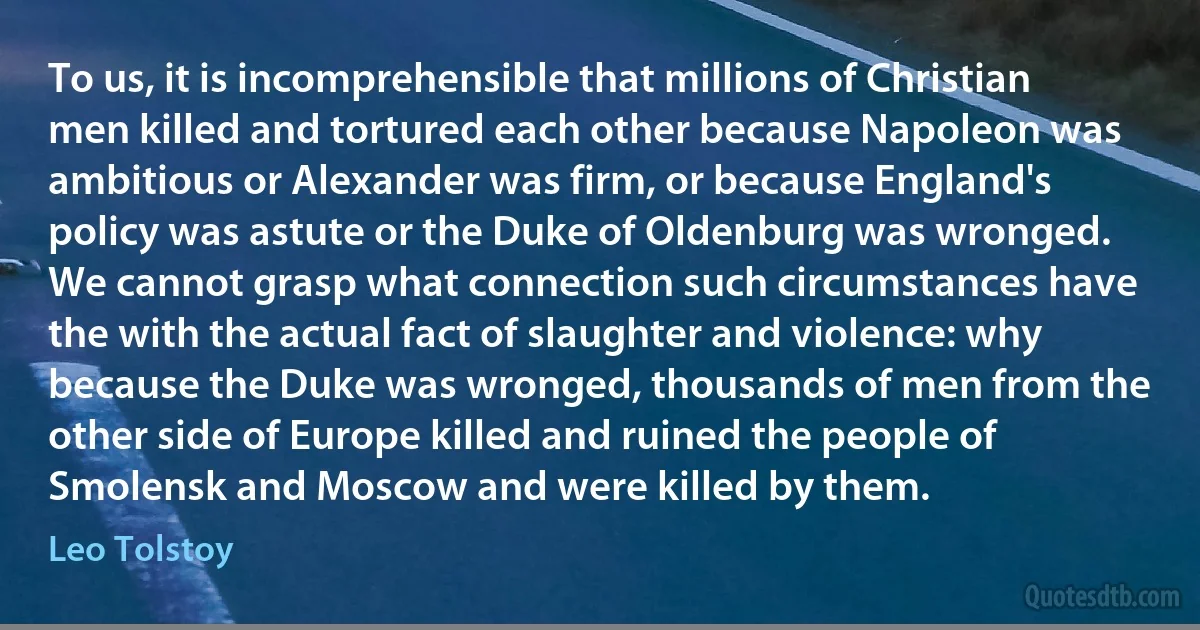Alexander Quotes - page 9
When Alexander McQueen bought the Kate Moss painting, she was really being persecuted. I can't remember the exact timing, but I think it was before the cocaine, when she was just having a hard time with Peter. I think that was when he bought that. I was really pleased because he was such a huge supporter of her. It was so terrible what was happening to her.

Stella Vine
Alexander Hamilton has been on the $10 since 1928, he's been well honored by the country, he was a great Secretary of the Treasury. But of all the people on the currency, the only one who isn't a president." [Note: Benjamin Franklin, whose portrait appears on the $100 bill, also was not a president.].

Grover Norquist
Jason [Alexander] says he was inspired by me. Why is everyone who's inspired by me such a fat, fucking loser? You know, I look back on this amazing evening and I can't help but think to myself, "Who the hell are you people?" What right do you have to make fun of me; what have you ever done?"

William Shatner
I tell you one of the most aggravating things of all is to pick up a review of a work of mine and have a reviewer say, "She is a natural writer." That sometimes will make me so angry that I will cry, really, because my intent is to write so it seems to flow. I think it's Alexander Pope who says, "Easy writing is damn hard reading," and vice versa, easy reading is damn hard writing. Sometimes I will stay up in my room for a day trying to get two sentences that will flow, that will just seem as if they were always there.

Maya Angelou
Men who hover over their opponents have no cause to evolve a science of wrestling; and Theseus is conventionally shown in combat with hulking of monstrous enemies, living by his wits. The tradition that he emulated the feats of Herakles may well embalm some ancient sneer at the over-compensation of a small assertive man. Napoleon comes to mind.
If one examines the legend in this light, a well-defined personality emerges. It is that of a light-weight; brave and aggressive, physically tough and quick; highly sexed and rather promiscuous; touchily proud, but with a feeling for the underdog; resembling Alexander in his precocious competence, gift of leadership, and romantic sense of destiny.

Mary Renault
Great times call for great men. There are unknown heroes who are modest, with none of the historical glamour of a Napoleon. If you analysed their character you would find that it eclipsed even the glory of Alexander the Great. Today you can meet in the streets of Prague a shabbily dressed man who is not even himself aware of his significance in the history of the great new era. He goes modestly on his way, without bothering anyone. Nor is he bothered by journalists asking for an interview. If you asked him his name he would answer you simply and unassumingly: 'I am Švejk....'

Jaroslav Hašek
A few weeks after the song's release, what was a fictionalized story became very real. On October 17, Tupac was crossing the street in downtown Oakland, California, when police officers Alexander Boyovich and Kevin Rodgers stopped him. They accused him of jaywalking and asked to see his ID. In the police report, they referred to Tupac by his middle name, Amaru, and called him angry and hostile. They said Tupac told them, "This is just two white cops who want to stop a n-----.”
A month later at a press conference, Tupac told his side of the story. As he was preparing to enter Union Bank, the officers approached him. Tupac asked why they were requesting to see his ID. He accused them of having a slave-master mentality before allegedly being thrown onto the concrete, cuffed, and choked until he was left unconscious. He was put in jail for seven hours for resisting arrest and later released.

Tupac Shakur
We were in Cooperstown (NY) a few years ago. Baseball's Hall of Fame Museum was full of visitors on a sunny morning. Among them were Pirates and Tigers players in baseball uniforms, sans spikes. They were to meet in an exhibition game an hour later. Roberto Clemente had a small camera whirring every few minutes. He was taking pictures of the enshrined plaques and other mementos of yesteryear's super stars ... Honus Wagner, Ty Cobb, Christy Mathewson, Tris Speaker, Grover Alexander ... to name a few. A Pittsburgher said to Roberto, "This is where you belong. Some day they will be taking pictures of your shrine here." "Thank you," he replied. "I guess a fellow like me has to die to get voted in by the writers."

Roberto Clemente
After fighting, scheming and murdering in pursuit of the secure tenure of absolute power, he found himself at last on a lonely pinnacle over an abyss, with no use for his power and security unattainable. His genius was such that he ended an epoch and began another - but one of unceasing war and misery, from which exhaustion produced an approach to order after two generations and peace at last under the Roman Empire. He himself never found peace. One is tempted to see him, in medieval terms, as the man who sold his soul to the Devil for power: the Devil kept his part of the bargain but ultimately claimed his own. But to the historian, prosaically such allegory, we must put it differently: to him, when he has done all the work - work that must be done, and done carefully - of analysing the play of faction and the system of government, Alexander illustrates with startling clarity the ultimate loneliness of supreme power.

Ernst Badian
Neuhaus was sitting next to him at a performance...that was being badly conducted by Alexander Gauk. Neuhaus leaned over to whisper in Shostakovich's ear: "Dmitry Dmitrievich, this is awful.” Whereupon Shostakovich turned to Neuhaus: "You're right, Heinrich Gustavovich! It's splendid! Quite remarkable!” Realising that he'd been misunderstood, Neuhaus repeated his earlier remark: "Yes,” muttered Shostakovich, "it's awful, quite awful.”
That was Shostakovich to the life.

Dmitri Shostakovich
... as last night I lay in bed,
There came before my eyes that wonted thread
Of shapes, and shadows, and remembrances,
That every other minute vex and please:
Things all disjointed come from north and south, -
Two witch's eyes above a cherub's mouth,
Voltaire with casque and shield and habergeon,
And Alexander with his nightcap on;
Old Socrates a-tying his cravat,
And Hazlitt playing with Miss Edgeworth's cat;
And Junius Brutus, pretty well so-so,
Making the best of's way towards Soho.
Few are there who escape these visitings-
Perhaps one or two whose lives have patent wings,
And through whose curtains peeps no hellish nose,
No wild-boar tushes, and no mermaid's toes;
But flowers bursting out with lusty pride,
And young Æolian harps personified;
Some Titian colours touch'd into real life, -
The sacrifice goes on;..

John Keats
Our enemies are Medes and Persians, men who for centuries have lived soft and luxurious lives; we of Macedon for generations past have been trained in the hard school of danger and war. Above all, we are free men, and they are slaves. There are Greek troops, to be sure, in Persian service - but how different is their cause from ours! They will be fighting for pay - and not much of at that; we, on the contrary, shall fight for Greece, and our hearts will be in it. As for our foreign troops - Thracians, Paeonians, Illyrians, Agrianes - they are the best and stoutest soldiers in Europe, and they will find as their opponents the slackest and softest of the tribes of Asia. And what, finally, of the two men in supreme command? You have Alexander, they - Darius!

Alexander the Great
Variants quoted as an anonymous proverb:
Better a herd of sheep led by a lion than a herd of lions led by a sheep.
A flock of sheep led by a lion was more powerful than a flock of lions led by a sheep.
An army of sheep led by a lion would defeat an army of lions led by a sheep.
It were better to have an army of sheep led by a lion than an army of lions led by a sheep.
An army of sheep led by a lion, will defeat an army of lions led by a sheep.
An army of sheep led by a lion would be superior to an army of lions led by a sheep.
Unsourced attribution to Alexander: I would not fear a pack of lions led by a sheep, but I would always fear a flock of sheep led by a lion.

Alexander the Great
Thus the Empire of the Greeks, which at first brake into four kingdoms, became now reduced into two notable ones, henceforward called by Daniel the kings of the South and North. For Ptolemy now reigned over Egypt, Lybia, Ethiopia, Arabia, Phœnicia, Cœlosyria, and Cyprus; and Seleucus, having united three of the four kingdoms, had a dominion scarce inferior to that of the Persian Empire, conquered by Alexander the great. All which is thus represented by Daniel: And the king of the South [Ptolemy] shall be strong, and one of his Princes [Seleucus, one of Alexander's Princes] shall be strong above him, and have dominion; his dominion shall be a great dominion.

Isaac Newton


